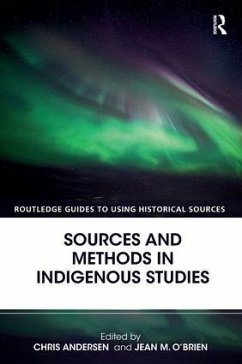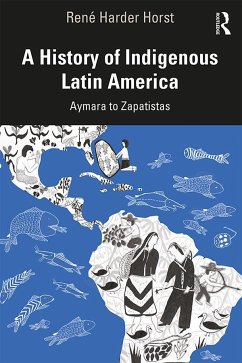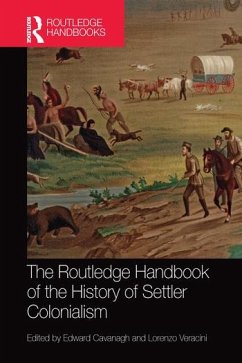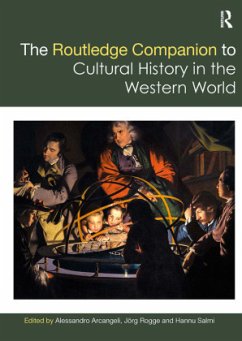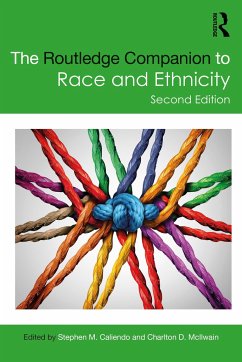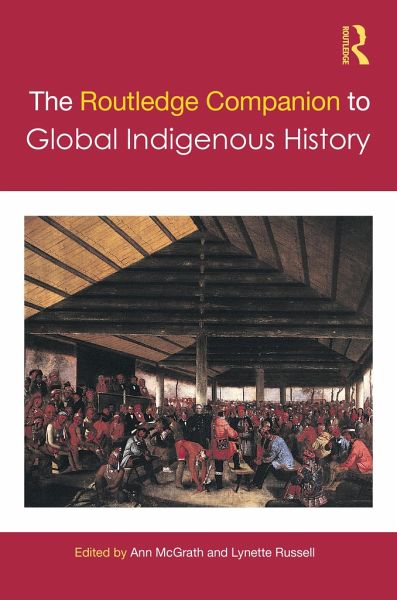
The Routledge Companion to Global Indigenous History

PAYBACK Punkte
25 °P sammeln!
The Routledge Companion to Global Indigenous History presents exciting new innovations in the dynamic field of Indigenous global history while also outlining ethical, political, and practical research.Indigenous histories are not merely concerned with the past but have resonances for the politics of the present and future, ranging across vast geographical distances and deep time periods. The volume starts with an introduction that explores definitions of Indigenous peoples, followed by six thematic sections which each have a global spread: European uses of history and the positioning of Indige...
The Routledge Companion to Global Indigenous History presents exciting new innovations in the dynamic field of Indigenous global history while also outlining ethical, political, and practical research.
Indigenous histories are not merely concerned with the past but have resonances for the politics of the present and future, ranging across vast geographical distances and deep time periods. The volume starts with an introduction that explores definitions of Indigenous peoples, followed by six thematic sections which each have a global spread: European uses of history and the positioning of Indigenous people as history's outsiders; their migrations and mobilities; colonial encounters; removals and diasporas; memory, identities, and narratives; deep histories and pathways towards future Indigenous histories that challenge the nature of the history discipline itself. This book illustrates the important role of Indigenous history and Indigenous knowledges for contemporary concerns, including climate change, spirituality and religious movements, gender negotiations, modernity and mobility, and the meaning of 'nation' and the 'global'. Reflecting the state of the art in Indigenous global history, the contributors suggest exciting new directions in the field, examine its many research challenges and show its resonances for a global politics of the present and future.
This book is invaluable reading for students in both undergraduate and postgraduate Indigenous history courses.
Indigenous histories are not merely concerned with the past but have resonances for the politics of the present and future, ranging across vast geographical distances and deep time periods. The volume starts with an introduction that explores definitions of Indigenous peoples, followed by six thematic sections which each have a global spread: European uses of history and the positioning of Indigenous people as history's outsiders; their migrations and mobilities; colonial encounters; removals and diasporas; memory, identities, and narratives; deep histories and pathways towards future Indigenous histories that challenge the nature of the history discipline itself. This book illustrates the important role of Indigenous history and Indigenous knowledges for contemporary concerns, including climate change, spirituality and religious movements, gender negotiations, modernity and mobility, and the meaning of 'nation' and the 'global'. Reflecting the state of the art in Indigenous global history, the contributors suggest exciting new directions in the field, examine its many research challenges and show its resonances for a global politics of the present and future.
This book is invaluable reading for students in both undergraduate and postgraduate Indigenous history courses.






